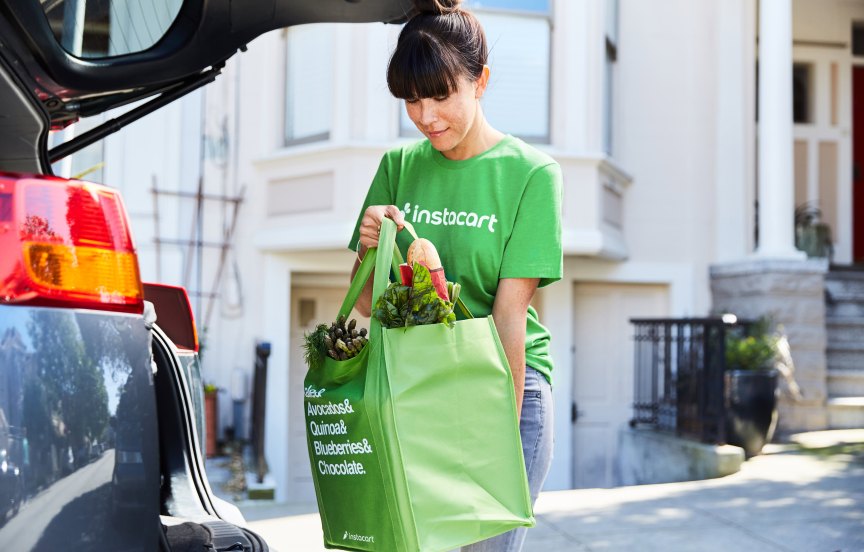Instacart makes IPO debut: Share price sets at $30, valuing the grocery delivery startup at nearly $10 billion

We’ve been covering the story of Instacart’s IPO for about two years. Now the highly anticipated day has arrived. Instacart, the popular grocery delivery app, has officially entered the Nasdaq stock exchange today. The company has priced its shares at $30, valuing the grocery delivery startup at approximately $10 billion.
The outcome of Instacart’s IPO will undoubtedly influence other startups considering their own stock market debuts, providing valuable insights into Wall Street’s current enthusiasm for such ventures. Should Instacart’s IPO be prosperous, it may signify the dawn of a fresh wave of IPOs, following a relatively subdued period in the market over the past 18 months.
As we reported yesterday, Instacart raised its proposed price range for the initial public offering (IPO) on Friday after the successful IPO of Arm, a chip designer owned by Softbank. The startup revised it to a fully diluted valuation of as much as $10 billion.
While Arm, a chip design company, made a significant splash with the largest IPO of the year last week, it’s crucial to highlight that it was the first venture-capital-backed startup to go public in the US since December 2021. Although this marked a notable milestone, Instacart is now seen as the next major test in the IPO landscape.
However, it’s worth noting that IPOs are not following the same pattern as they did from 2020 to 2021. During that period, characterized by ample venture capital funding and a hot tech IPO market, tech companies going public were primarily growth-focused unicorns that had yet to achieve profitability. In contrast, Instacart has reported profits for the past five consecutive quarters, setting it apart from the crowd.
Nonetheless, profitability doesn’t always translate to a high market valuation. In 2020, investors assigned Instacart a staggering $39 billion valuation, a figure significantly higher than its current $10 billion valuation.
This shift in valuation is not unique to Instacart, as many startups are undergoing similar downward adjustments in their worth as market dynamics evolve. Venture capitalists and private funds are coming to terms with the fact that some startups were overvalued during their capital-raising phases. As these companies make their public debuts, investors may face losses on their initial investments.
Meanwhile, another closely watched IPO is Klaviyo, a marketing and automation startup, which will set its pricing tonight and commence trading tomorrow.
Founded in 2012 by Apoorva Mehta (a former Amazon employee), Brandon Leonardo, and Max Mullen, the San Francisco, California-based Instacart is a grocery startup that offers same-day grocery delivery service. Instacart has quickly scaled to over 220 markets and partnered with retailers across North America, including popular national chains (Albertsons, Kroger, Costco, Loblaw) as well as local, regional grocers (Publix, Wegmans, Schnucks, H-E-B).
Instacart is available to more than 85% of U.S. households and more than 70% of Canadian households with delivery and pickup services across more than 5,500 cities in North America. The company expects to deploy the new capital in a number of ways, including product development focused on introducing new features and tools to enhance the customer experience, continued investment in Instacart Enterprise to support retailers’ end-to-end eCommerce needs, and further investment in Instacart Ads to help connect Consumer Packaged Goods (CPG) brands of all sizes to customers shopping online from their favorite local retailers.

